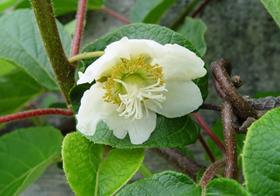
Kiwifruit canker may have only recently been discovered in New Zealand, but the country’s biosecurity officials now believe it could have been present in the country as far back as 2007.
DNA tests of stored kiwifruit pollen samples collected over the past few years shows definite presence of the Pseudomonas syringae pv actinidiae (Psa) bacteria for 2009 and 2010, with weak positive results returned from samples taken in 2007, according to the Ministry of Agriculture and Forestry’s (MAF) agency Biosecurity New Zealand.
The results suggest the outbreak of Psa over the past few weeks was brought on by this year’s unusually cold, wet winter in New Zealand, as was the case with the similar outbreak of the disease this year in Italy’s Lazio region.
“The existence of Psa in New Zealand kiwifruit orchards may have been undetected due to low expression of the bacteria,” said single-desk kiwifruit marketer Zespri in a statement. “Environmental or other factors may have contributed to an outbreak this year which has had a significant effect on a number of vines.”
Debate over pollen imports
Some groups in New Zealand, notably the independent rural advocacy organisation Federated Farmers, have pointed the finger at imports of kiwifruit pollen from Chile and China in the last few years.
In the last few years New Zealand has imported 77kg of Chilean pollen, which has been used on orchards, and 2kg from China, which was used for laboratory testing.
DNA testing of pollen imported from Chile last week turned up a single positive result for kiwifruit canker, reported the New Zealand Herald, prompting authorities to suspend imports and hold current stocks.
Retesting of the Chilean pollen failed to turn up any further positive results, however.
“The disturbing fact is that untested pollen has been allowed into New Zealand from risk countries like China and Chile,” said John Hartnell, a biosecurity spokesman for Federated Farmers.
“Federated Farmers believes the precautionary principle needs to apply. That starts by ceasing artificial kiwifruit pollination until the pollen, both domestic and imported, is certified clean.”
But New Zealand’s biosecurity officials said there was no evidence that Psa could be spread by pollen. MAF told local media last week that the lack of routine testing of imported pollen for such pathogens had been based on the best available science at the time.
“There is no firm evidence that artificial pollination is causing Psa disease,” said MAF’s Psa response manager David Yard, adding any claims that imported pollen was the introduction vector were premature.
The likelihood pollen imports were at fault was also reduced by the detection of Psa DNA in pollen collected in New Zealand in 2007, predating any kiwifruit pollen imports.
In addition, only about half of the infected orchards – up to 61 according to the latest figures on Monday – used artificial pollination. People, wind or some other cause were more likely culprits, said Mr Yard.
The research now going into the capacity of kiwifruit pollen to carry the disease will also have a sizeable effect on New Zealand’s own exports. The country is a significant exporter of kiwifruit pollen, sending the golden dust to growers in Japan, Australia, China, Italy and South America.



